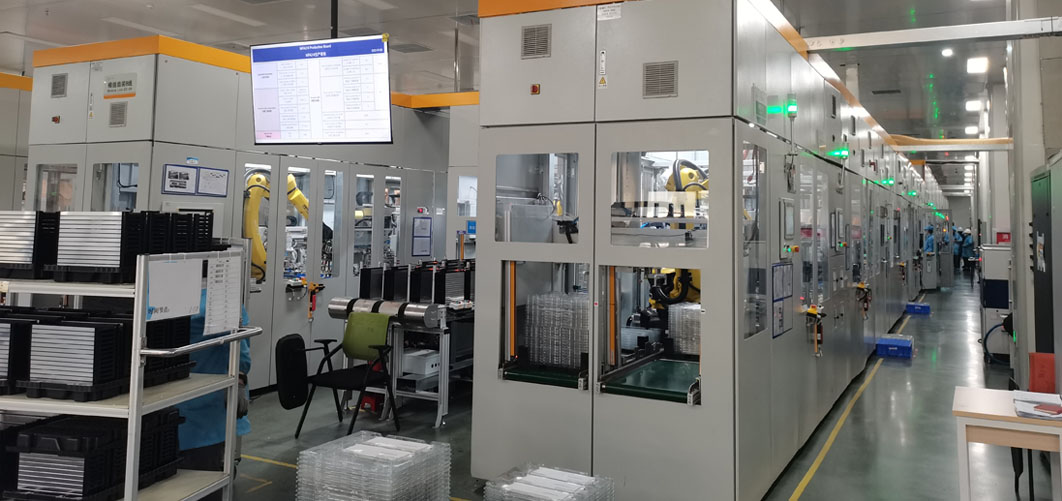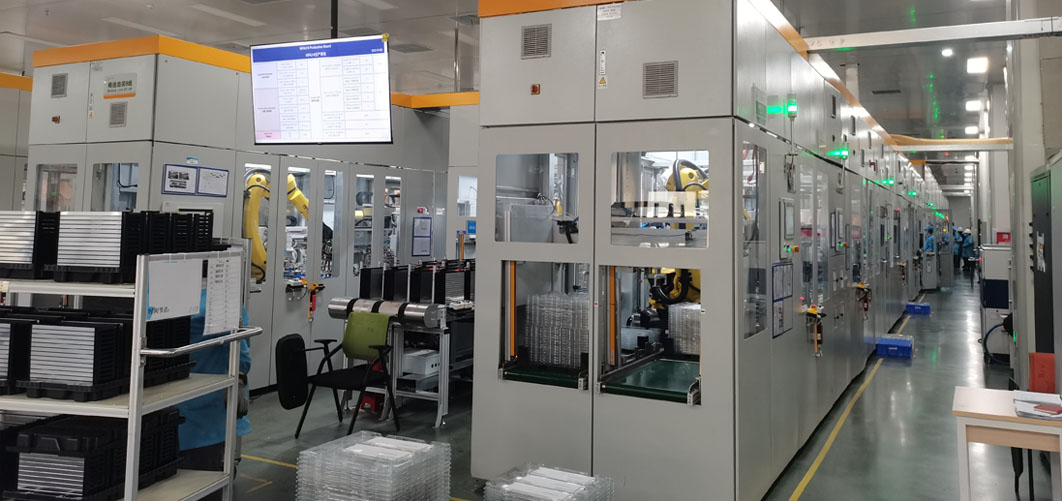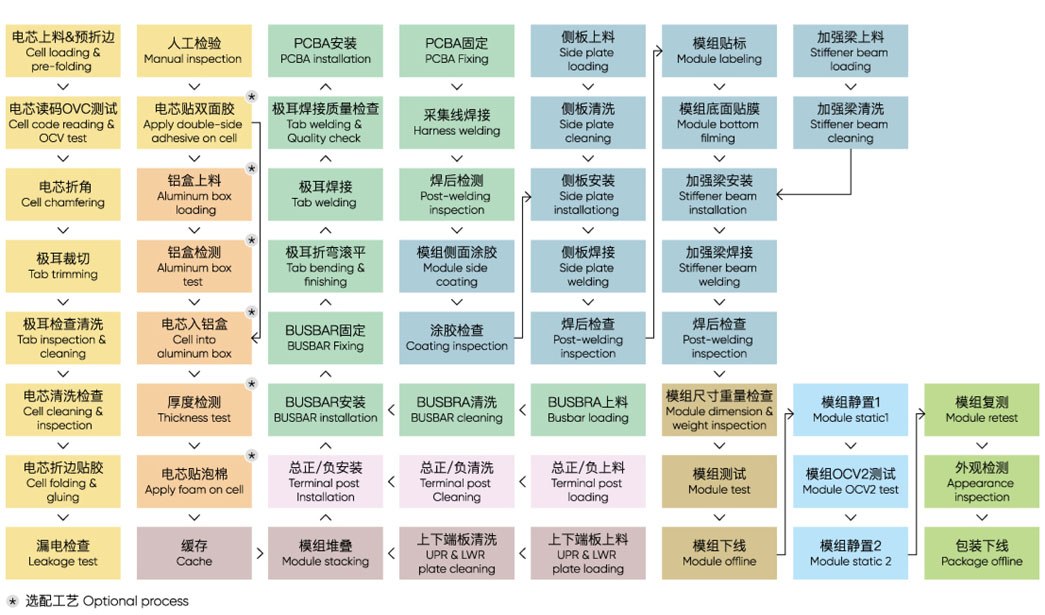




Pouch battery automatic assembly line includes the production processes of cell processing (feeding, testing, tab cutting/bending/inspection/cleaning, gluing, foaming, etc.), cell stacking (cell assembly, cell caching, polarity safety inspection, etc.), tab welding (busbar installation, tab welding, FPC installation, FPC welding, post-welding inspection, etc.), module assembly (module gluing, end-side plate installation & welding, UPR & LPR cover installation & welding, post-welding inspection, etc.), module testing & off-line (EOL testing, capacity testing, dimension inspection, module static, module off-line, etc.) and so on, mainly including testing, gluing, welding and other processes.

1、Capacity: Battery cell processing capacity of a single production line is 10~30PPM, thus the appropriate solution can be tailed according to the takt.
2、Highly automatization: Standard robots are widely used in the production line, which can be integrated with AGV for automatic loading and unloading.
3、High-reliability design: the robot is used to realize the core functions, and the double-station servo slide design is adopted between each station, which has the characteristics of high precision and easy changeover. Combined with cache station, they can adopt wide range of product fluctuations, in order to improve production flexibility. The welding station adopts imported equipment to ensure the welding quality.
4、Flexible design of the production line: In case of abnormalities in the previous/next process, the product can be manually put in/out from the transplanting platform, meanwhile the debugging cycle can be greatly shortened. When the product process changes, some workstations can be replaced to realize process switchover.
5、Stability design: A large number of six-axis standard industrial robots are adopted to improve the automation level and stability, such as cell sorting, cell into housing, etc., which are fast and critical.
6、MES system: MES data management system runs through the production of whole plant process, which is leading the management & control at all levels of the entire production process, and traces the lean control of production process parameters, quality status, and material status, etc.